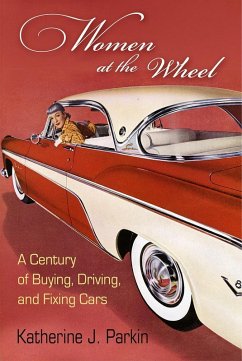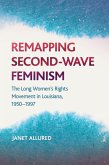Ever since the Ford Model T became a vehicle for the masses, the automobile has served as a symbol of masculinity. The freedom of the open road, the muscle car's horsepower, the technical know-how for tinkering: all of these experiences have largely been understood from the perspective of the male driver. Women, in contrast, were relegated to the passenger seat and have been the target of stereotypes that portray them as uninterested in automobiles and, more perniciously, as poor drivers.
In Women at the Wheel, Katherine J. Parkin illuminates the social implications of these stereotypes and shows how they have little basis in historical reality. With chapters on early driver's education and licensing programs, and on buying, driving, and caring for cars, she describes a rich cast of characters, from Mary Landon, the first woman ever to drive in 1899, to Dorothy Levitt, author of the first automotive handbook for women in 1909, to Margie Seals, who opened her garage, "My Favorite Mechanic . . . Is a Woman," in 1992.
Although women drove and had responsibility for their family's car maintenance, twentieth-century popular culture was replete with humorous comments and judgmental critiques that effectively denied women pride in their driving abilities and car-related expertise. Parkin contends that, despite women's long history with cars, these stereotypes persist.
In Women at the Wheel, Katherine J. Parkin illuminates the social implications of these stereotypes and shows how they have little basis in historical reality. With chapters on early driver's education and licensing programs, and on buying, driving, and caring for cars, she describes a rich cast of characters, from Mary Landon, the first woman ever to drive in 1899, to Dorothy Levitt, author of the first automotive handbook for women in 1909, to Margie Seals, who opened her garage, "My Favorite Mechanic . . . Is a Woman," in 1992.
Although women drove and had responsibility for their family's car maintenance, twentieth-century popular culture was replete with humorous comments and judgmental critiques that effectively denied women pride in their driving abilities and car-related expertise. Parkin contends that, despite women's long history with cars, these stereotypes persist.
Dieser Download kann aus rechtlichen Gründen nur mit Rechnungsadresse in A, D ausgeliefert werden.









